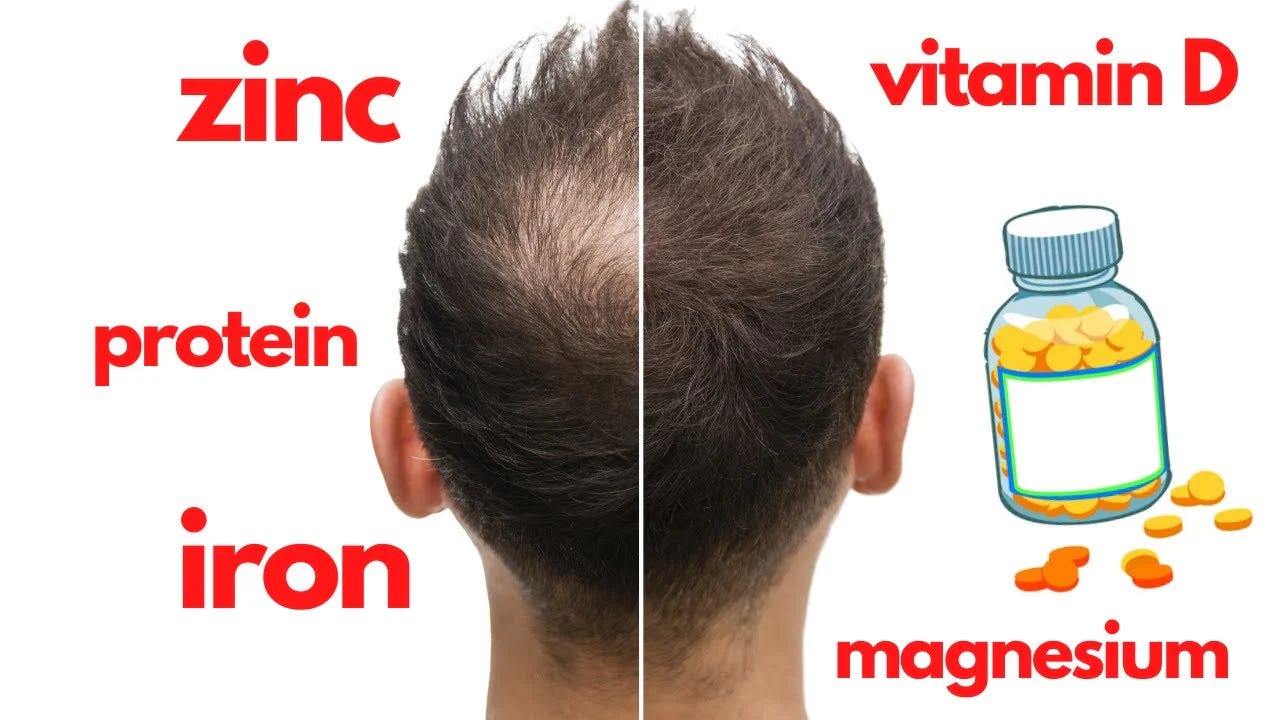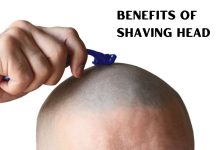Vitamin Deficiency That Causes Hair Loss
Hair Loss and Its Causes: A Comprehensive Guide
Briefly introduce the topic of hair loss and its potential causes.
Mention that vitamin deficiency is a significant factor in hair loss.
Emphasize the importance of understanding and addressing specific vitamin deficiencies related to hair loss.

Common Causes of Hair Loss
The Complexity of Hair Loss: Unraveling the Factors
Explain that hair loss can result from a range of factors, including genetics, hormonal fluctuations, and nutritional deficiencies.
Discuss how lifestyle choices, such as diet and stress, can impact hair health.
Encourage readers to explore the role of vitamins in maintaining healthy hair.
The Role of Vitamins in Hair Health
Nourishing Your Locks: The Vital Role of Vitamins in Hair Care
Dive deeper into the significance of vitamins for maintaining healthy hair.
Highlight key vitamins known to be essential for hair growth and maintenance.
Explain how deficiencies in these vitamins can lead to hair loss.
Identifying Vitamin Deficiencies
Signs Your Hair May Be Sending: Recognizing Vitamin Deficiency Clues
Describe common symptoms and signals of vitamin deficiencies that may contribute to hair loss.
Provide insights on how to recognize these signs through physical symptoms.
Stress the importance of consulting a healthcare professional for accurate diagnosis and guidance.
Vitamins That Can Cause Hair Loss
Cracking the Code: Understanding the Vitamins Linked to Hair Thinning
Focus on specific vitamins (e.g., vitamin D, vitamin B7, vitamin E) and their crucial role in hair health.
Elaborate on how deficiencies in these vitamins can lead to hair thinning and loss.
Offer information on recommended daily intake and dietary sources.
Preventing Hair Loss Due to Vitamin Deficiency
Unlocking the Solutions: Strategies to Combat Hair Loss Caused by Vitamin Deficiencies
Share practical tips and lifestyle changes to prevent hair loss linked to vitamin deficiencies.
Discuss the importance of a balanced diet rich in essential vitamins.
Include advice on taking supplements under professional guidance.
Treatment and Recovery
Reversing the Effects: How to Restore Hair Growth with Proper Nutrition
Explore treatment options for individuals experiencing hair loss due to vitamin deficiencies.
Highlight the role of vitamins in hair recovery and regrowth.
Stress the importance of patience and consistency in the recovery process.
Expert Insights and Recommendations
Seeking Professional Guidance: Expert Tips on Managing Hair Loss
Encourage readers to consult healthcare professionals and dermatologists.
Share expert insights on diagnosing and addressing hair loss issues.
Mention the potential role of prescription medications.
FAQs About Vitamin Deficiency and Hair Loss
Q: Can vitamin deficiencies really cause hair loss?
A: Yes, certain vitamin deficiencies, such as vitamin D, biotin, and iron, can contribute to hair loss by affecting the hair growth cycle.
Q: Which vitamins are essential for healthy hair?
A: Essential vitamins for healthy hair include biotin, vitamin D, vitamin E, vitamin A, vitamin C, and various B vitamins like Biotin and B12.
Q: How can I tell if my hair loss is due to a vitamin deficiency?
A: Consulting a healthcare professional is the best way to determine the cause of your hair loss. They can perform tests to identify any deficiencies.
Q: Can I reverse hair loss caused by vitamin deficiency?
A: In many cases, hair loss due to vitamin deficiencies can be reversed by addressing the underlying deficiency through dietary changes or supplements.
Q: What foods should I eat to prevent vitamin-related hair loss?
A: Consume foods rich in the vitamins mentioned, such as eggs, leafy greens, nuts, and lean meats, to support hair health.
Q: Is it safe to take vitamin supplements for hair loss?
A: While supplements can be helpful, it’s essential to consult a healthcare provider before starting any new supplement regimen.
Q: How long does it take to see improvements in hair growth after addressing a deficiency?
A: It varies by individual and the severity of the deficiency. Typically, improvements may become noticeable within a few months.
Q: Can vitamin supplements lead to hair growth in areas where hair is entirely lost?
A: Supplements can improve hair health, but they may not restore hair in areas where it’s entirely lost. Hair follicles need to be active for regrowth.
Q: Are there any side effects of taking vitamin supplements for hair loss?
A: When taken as recommended, most vitamin supplements have minimal side effects. Excessive intake should be avoided.
Q: Is it necessary to consult a doctor before taking vitamin supplements for hair loss?
A: Yes, consulting a healthcare professional is crucial to determine the right supplements and dosages based on your specific needs.
Conclusion:
Summarize key takeaways, emphasizing the significance of nutrition in hair health. Encourage readers to take proactive steps in maintaining their hair. Offer hope and motivation for those on their journey to healthier, fuller hair.




